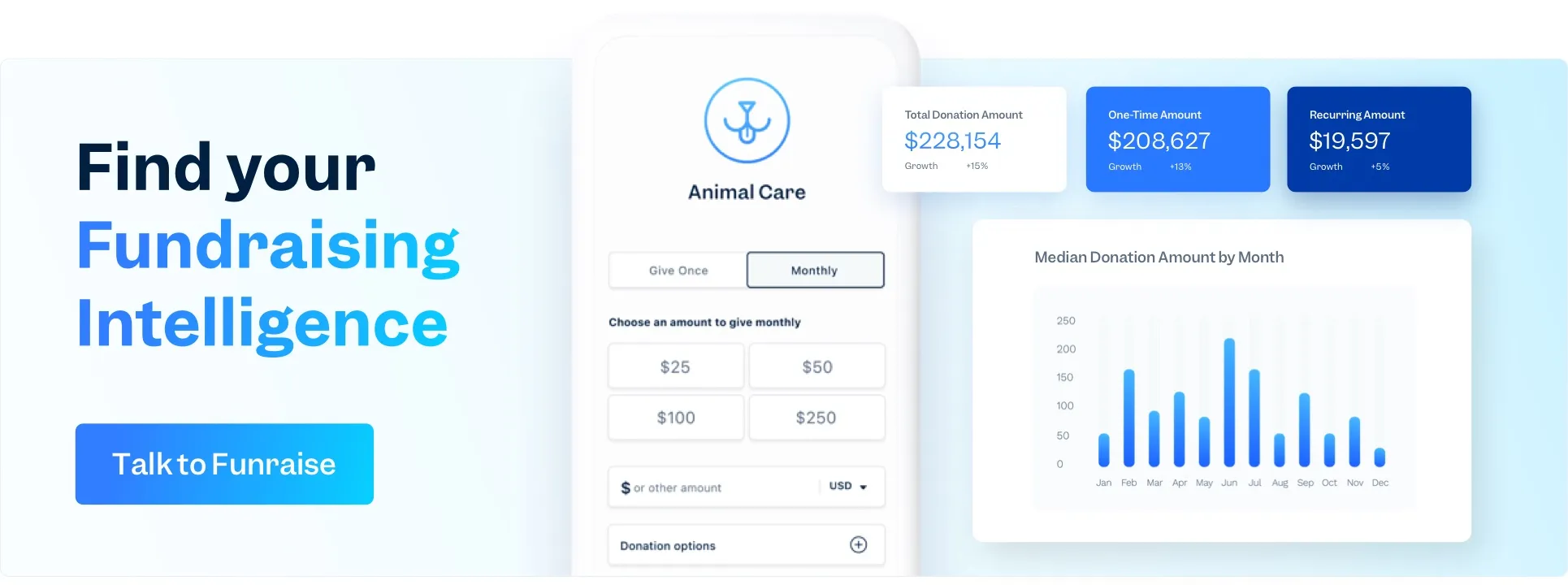Justin is Funraise's CEO, a co-founder, and a bad-ass, experienced nonprofit fundraiser. Like a true fundraiser-turned-founder, he breaks down the concepts behind Funraise's mission everywhere he can make nonprofits' voices heard.
I'm seeing a lot of this lately on nonprofit job postings:
Required
...Advanced college degree relevant to the job description
...At least five years of experience relevant to the job description
...Expert in the subject matter relevant to the job description
This list of requirements goes on and on. Then we get to compensation...
$30-$50K
👆🏼 Sorry to break it to you, but you aren't getting the talent you need with compensation like that.
Did you know that right now, almost 4 million people are quitting their jobs each month? And 41% of employees are considering quitting? The Great Resignation has its hold on us, meaning nonprofits cannot take any shortcuts when it comes to investing in our employees.
I'm not the only one saying this! Here are some additional perspectives from more nonprofit leaders.
Jennifer K says,
"...as nonprofit professionals, we need to emphasize our lived personal and professional experiences that make us the right fit for the job even when our education and work experience doesn't exactly line up with their expectations. This is a strong push in the community-centric fundraising movement. In turn, nonprofits need to be looking for job candidates who have that lived experience with their mission. ...There needs to be a right-sizing of position and pay as well as pushback by nonprofits to say we're willing and able and need to pay market plus rates for qualified persons. In addition, we need to provide frequent and recurring professional development to make sure that our staff, and volunteers, continue to keep pace with the industry and community needs."
Pia P. puts it perfectly:
"...until people - donors and watchdogs - understand and value talent and reinvestment, most nonprofits are hamstringed and punished when their overhead goes up. Its a terrible situation to be in..."
Laura B. breaks it down!
"Funders, donors, and philanthropic organizations who make nonprofits possible also have a role to play in this system. Often equitable wages, particularly among staffers who are not top executives, are looked at by granters as a negative towards overhead.
There is still the idea in the nonprofit world, particularly amongst the systems funding this world, that an organization should not have a high overhead inclusive of payroll, particularly because it is a nonprofit. Until this mentality changes and the criteria of funding changes, we will continue to see these types of salary ranges. Additionally, there are whole industries, like theater, for example, that are historically and continuously underfunded that many salaries over 50k are nigh impossible for these organizations even though they want to pay people more.
Also, traditional marketing strategies have permeated these industries leaving ratios of development to programming funding skewed, and the mentality on how nonprofits make money and get donors needs to change. This is a multi-faceted issue where large donors, federal and state granting programs, and foundations need to take much more responsibility for why salaries in the nonprofit sector continue to be so low."
David C. states,
"A lot of this is on boards who have good intentions of wanting to be good stewards of resources, but ultimately are penny wise and pound foolish. They see employees as overhead rather than investments. We should strive to have the most qualified people working to make the most impact at a competitive wage."
Melissa D. shows up:
"My pet peeve is some organizations in the nonprofit sector basically requiring their staff to live in poverty and qualify for the services said non profit is providing.
A local organization has program staff (who are all required to have a master's degree) out in the field working to sign people up for food stamps. That position pays $25,000!?!? Does the organization not see the irony in perpetuating poverty, the very problem they are working to solve, by paying those program people a wage that is barely above the poverty line?"
And Areni K. tells us their story:
"...what you're saying is so common and such a demoralizing idea. Every agency I've gone to work for, I've found dedicated, committed people working for less than a living wage. It takes time to fix it, but it can be done. Streamlining process, using technology effectively, and thinking strategically rather than staying in the paycheque to paycheque mentality is necessary."
The bottom line: Nonprofits, either change your requirements or change your compensation. If you're serious about your mission, find a way to address the compensation instead of looking for less qualified people.
UPDATE: We believe so strongly in the importance of adding salary ranges to job descriptions that we built our own job board. Find nonprofit jobs at Nonprofit Jobs by Funraise. And send us your open jobs—we'll add jobs with the salary listed in the public job description.































.webp)
.webp)











.webp)
.webp)

.webp)
.webp)
.webp)




